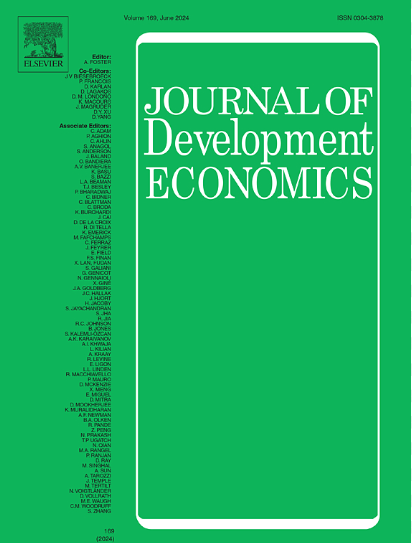Saving an old regime with new elites? The unintended effects of co-opting foreign-educated councilors in China
IF 4.6
1区 经济学
Q1 ECONOMICS
引用次数: 0
Abstract
How does the co-optation of foreign-educated elites influence local stability? This study exploits a quasi-experimental setting created by the establishment of provincial Consultative Bureaus in China in 1909 to examine the political consequences of integrating Japan-educated returnees into local governance. Using an original, prefecture-by-month panel dataset across 262 prefectures from 1901 to 1911, we find that co-opting foreign-educated elites produced unintended effects: it significantly reduced revolutionary armed struggles (the “revolution effect”), but simultaneously increased peasant revolts (the “revolt effect”). Mechanism analysis suggests that returnees advocated reforms that intensified local tax burdens—particularly in economically strained regions—provoking peasant revolts. Our findings underscore a critical trade-off in the modernization efforts of autocratic regimes: when elites’ reformist ambitions outpace the adaptive capacity of society, well-intended reforms can generate unintended backlash.
拯救一个拥有新精英的旧政权?在中国选择外国教育背景的议员的意外影响
接受外国教育的精英如何影响当地的稳定?本研究利用1909年中国设立省谘询局所创造的准实验环境,来检视在日本受教育的海归融入地方治理的政治后果。利用1901年至1911年间262个县按月的原始面板数据,我们发现吸收外国教育精英产生了意想不到的效果:它显著减少了革命武装斗争(“革命效应”),但同时增加了农民起义(“起义效应”)。机制分析表明,海归提倡的改革加重了当地的税收负担——尤其是在经济紧张的地区——从而引发了农民起义。我们的研究结果强调了专制政权现代化努力中的一个关键权衡:当精英的改革野心超过社会的适应能力时,善意的改革可能会产生意想不到的反弹。
本文章由计算机程序翻译,如有差异,请以英文原文为准。
求助全文
约1分钟内获得全文
求助全文
来源期刊

Journal of Development Economics
ECONOMICS-
CiteScore
8.30
自引率
4.00%
发文量
126
审稿时长
72 days
期刊介绍:
The Journal of Development Economics publishes papers relating to all aspects of economic development - from immediate policy concerns to structural problems of underdevelopment. The emphasis is on quantitative or analytical work, which is relevant as well as intellectually stimulating.
 求助内容:
求助内容: 应助结果提醒方式:
应助结果提醒方式:


